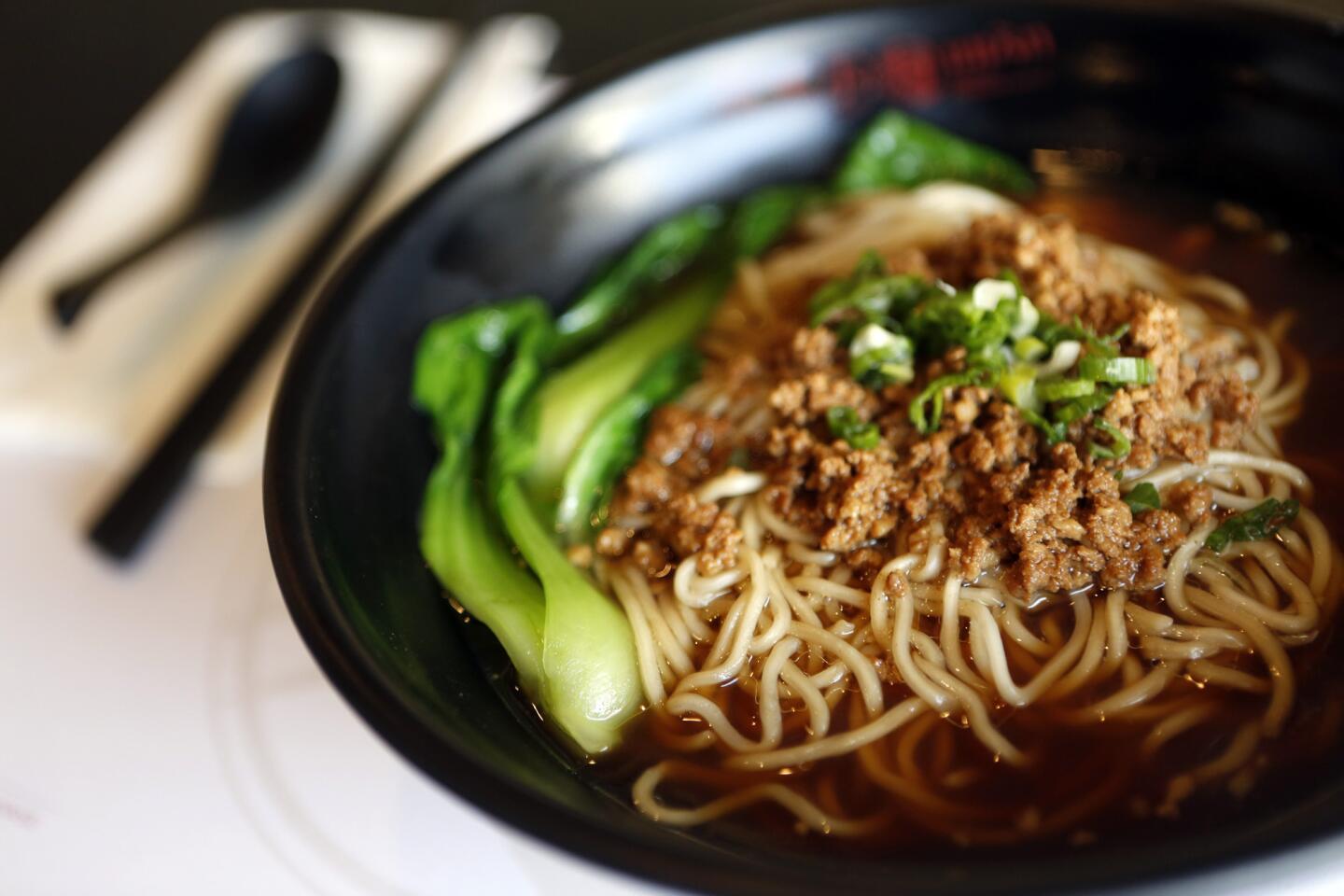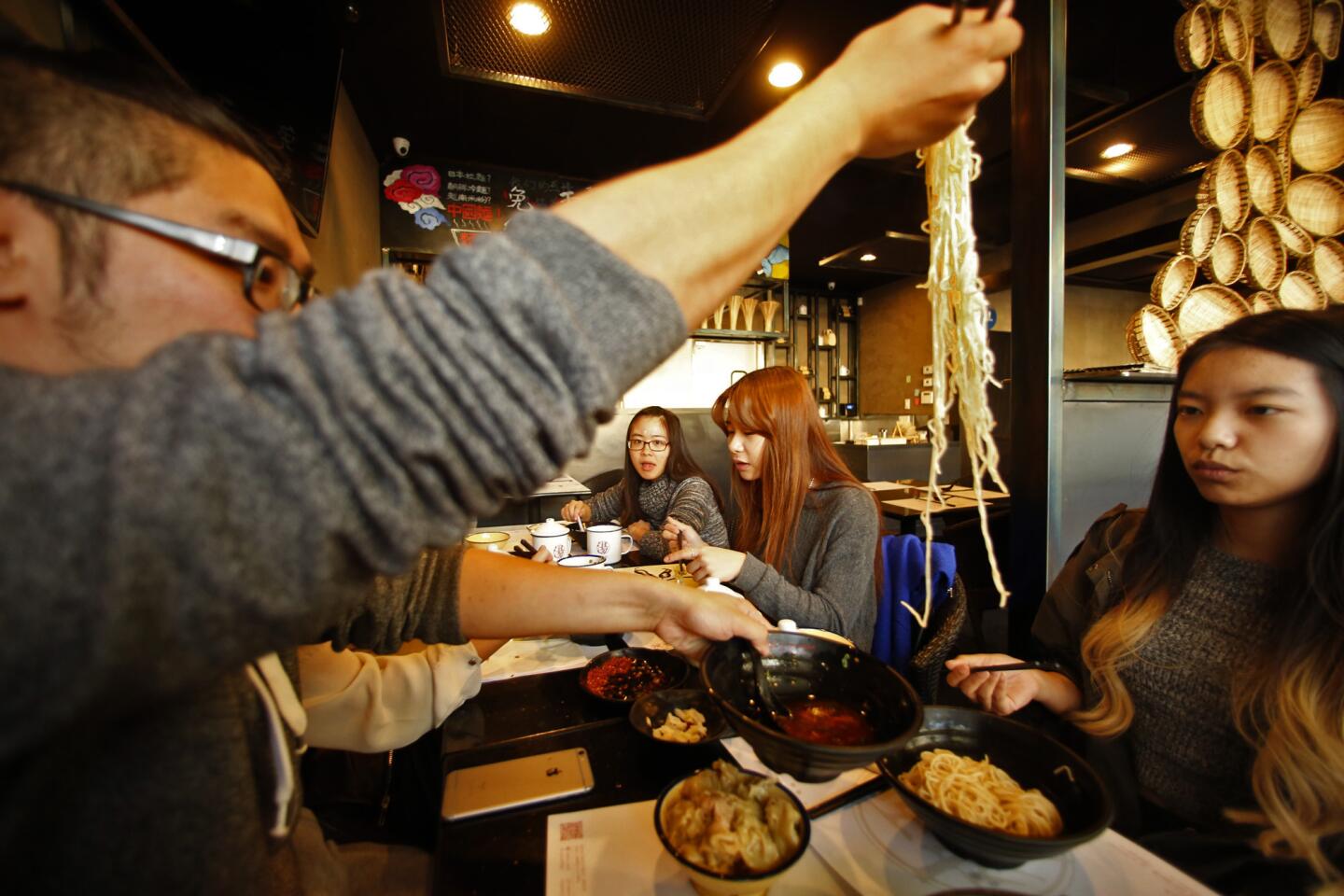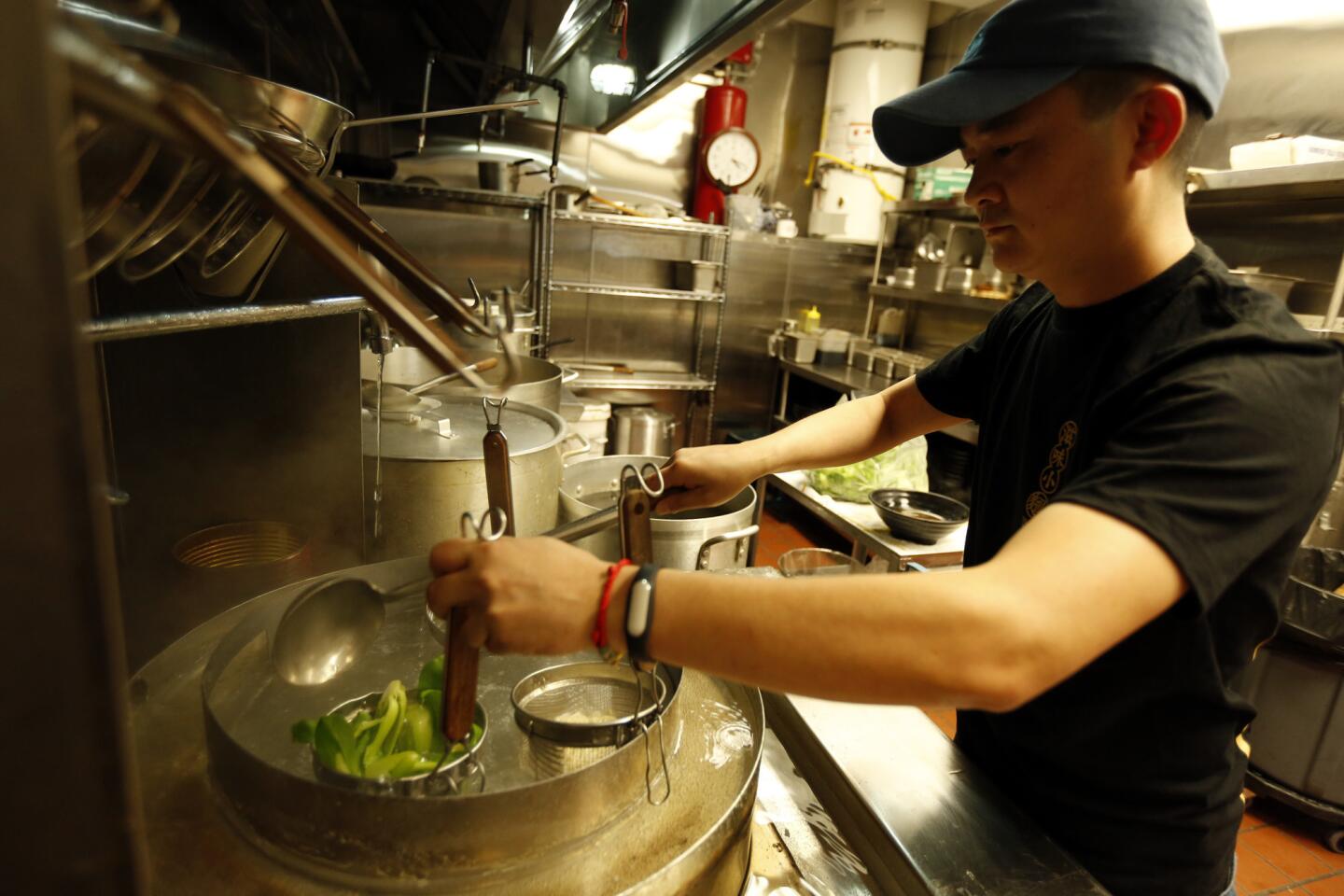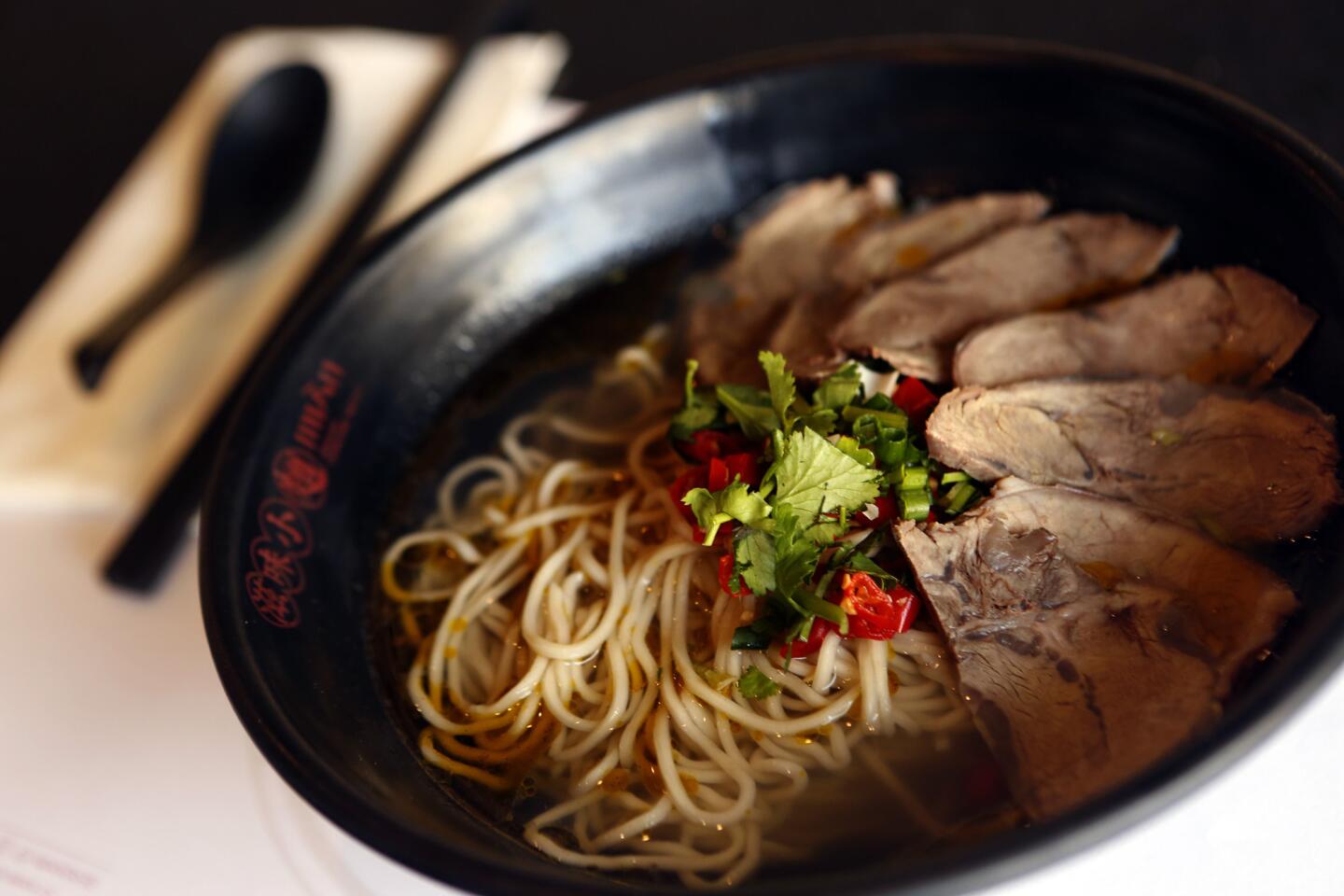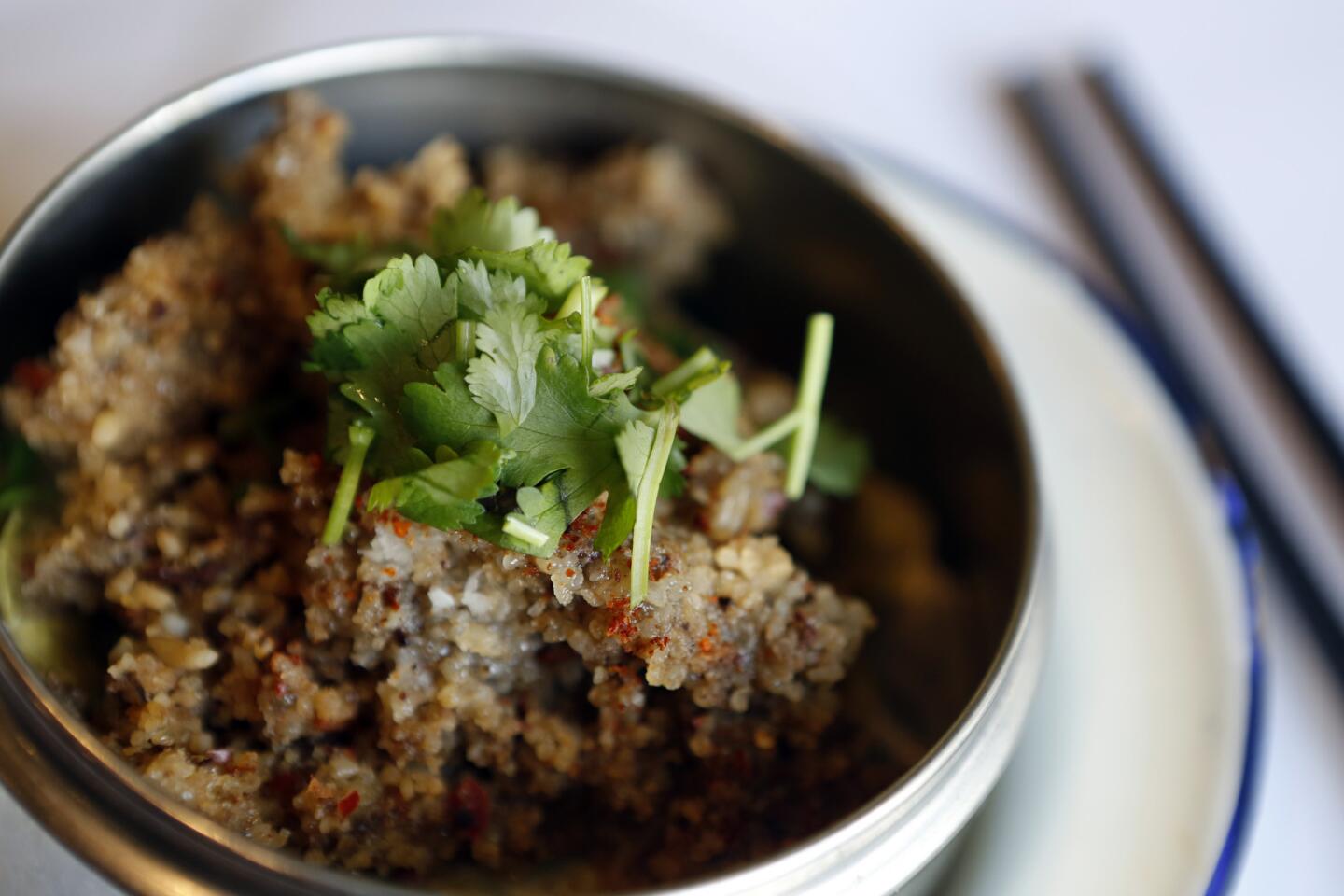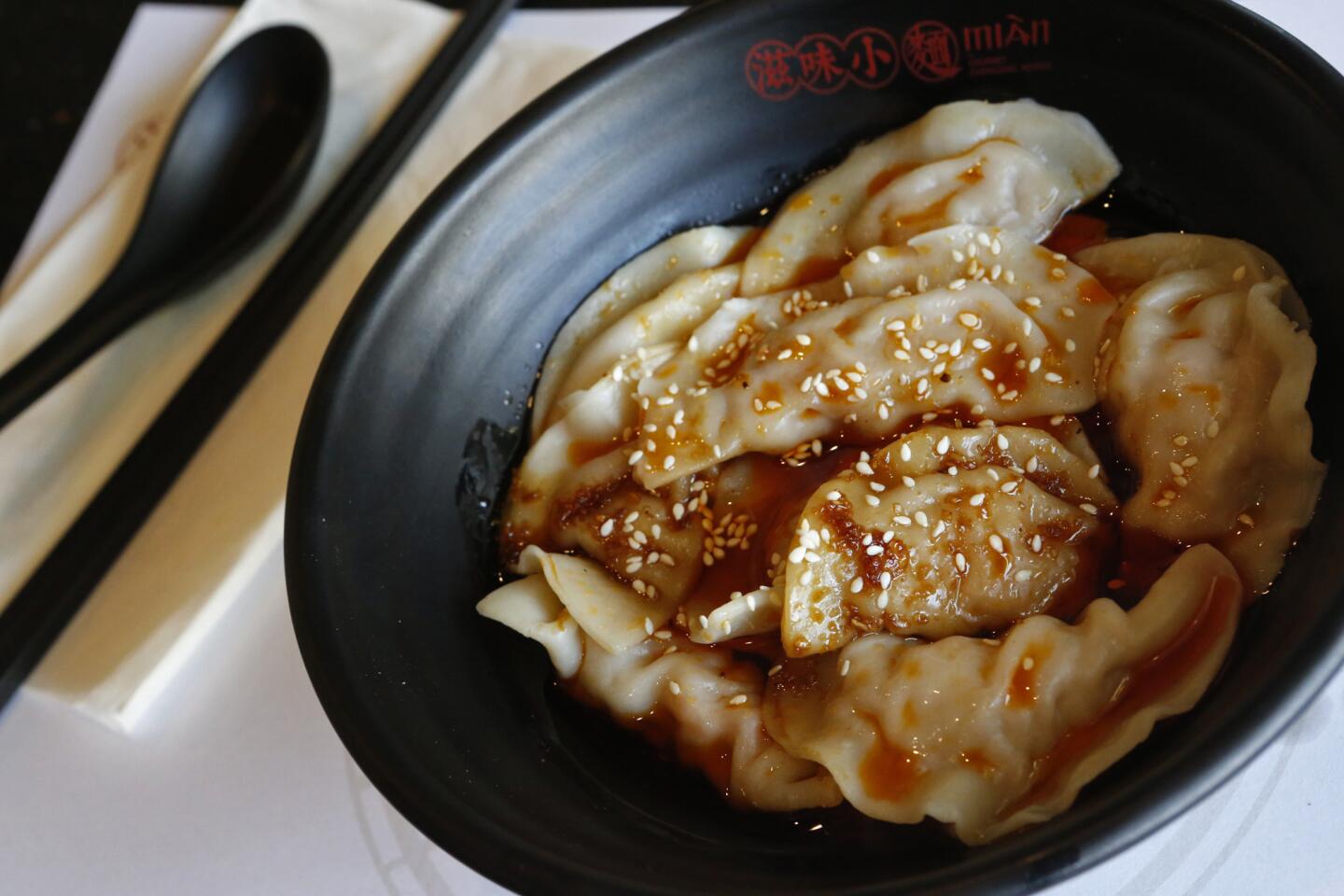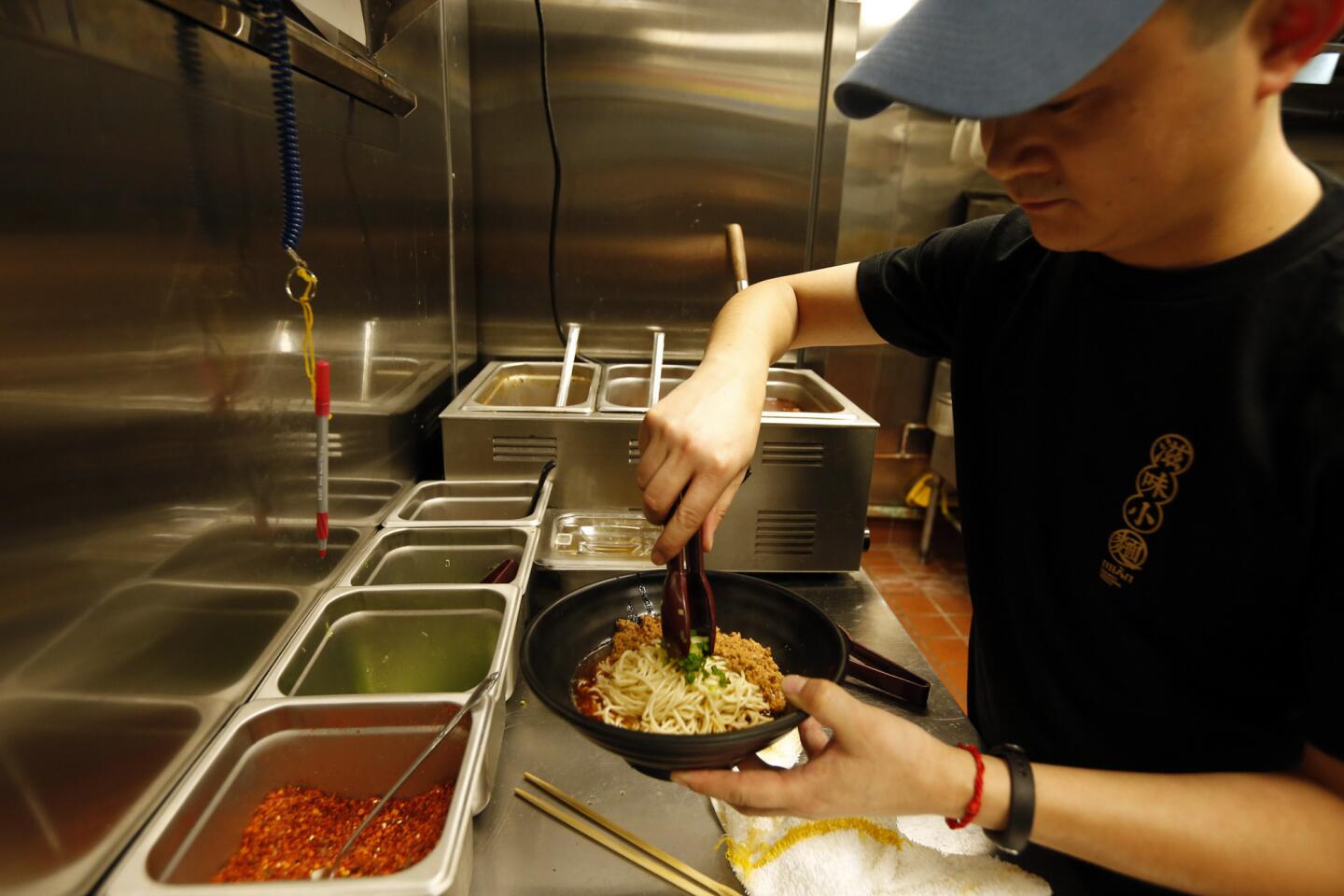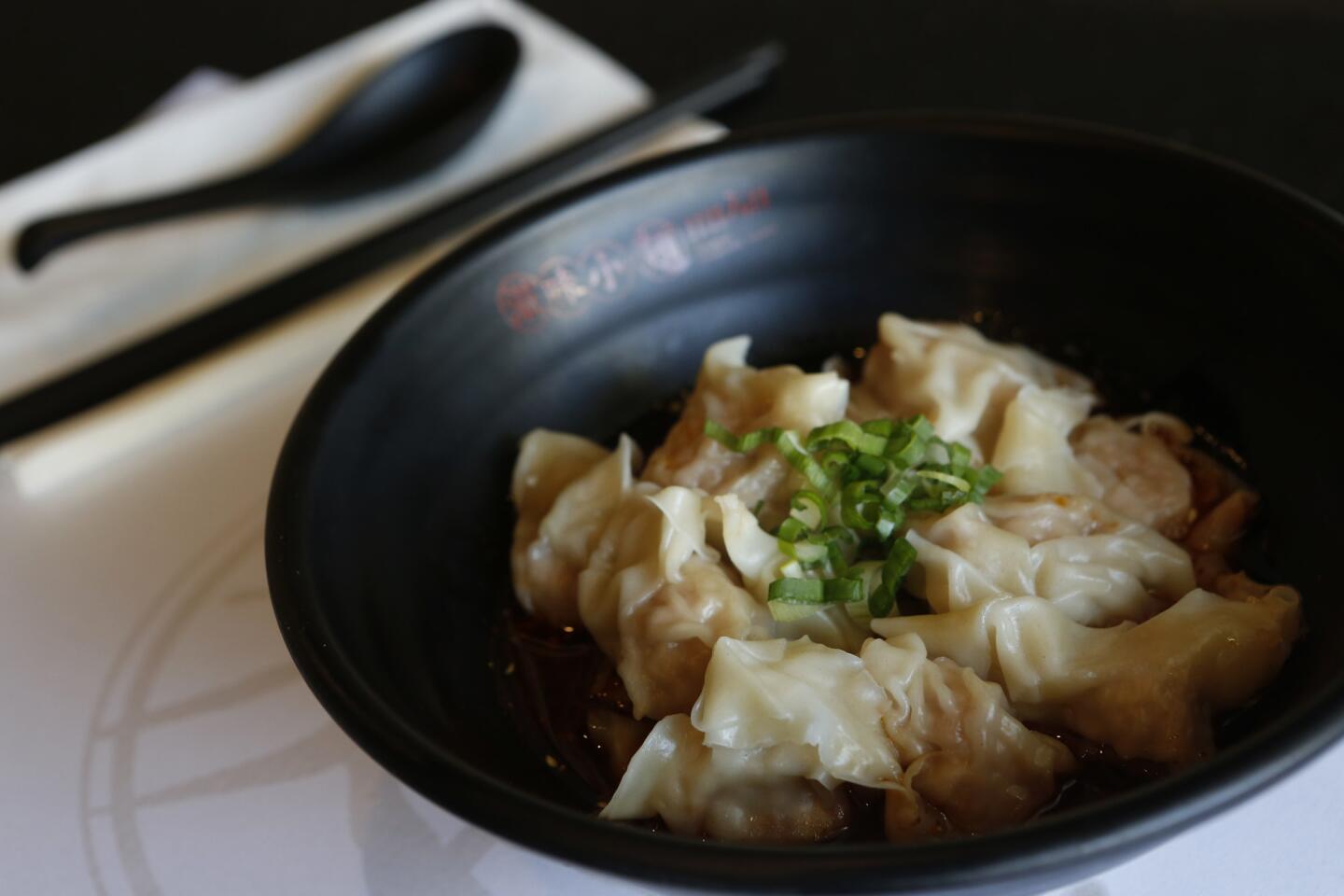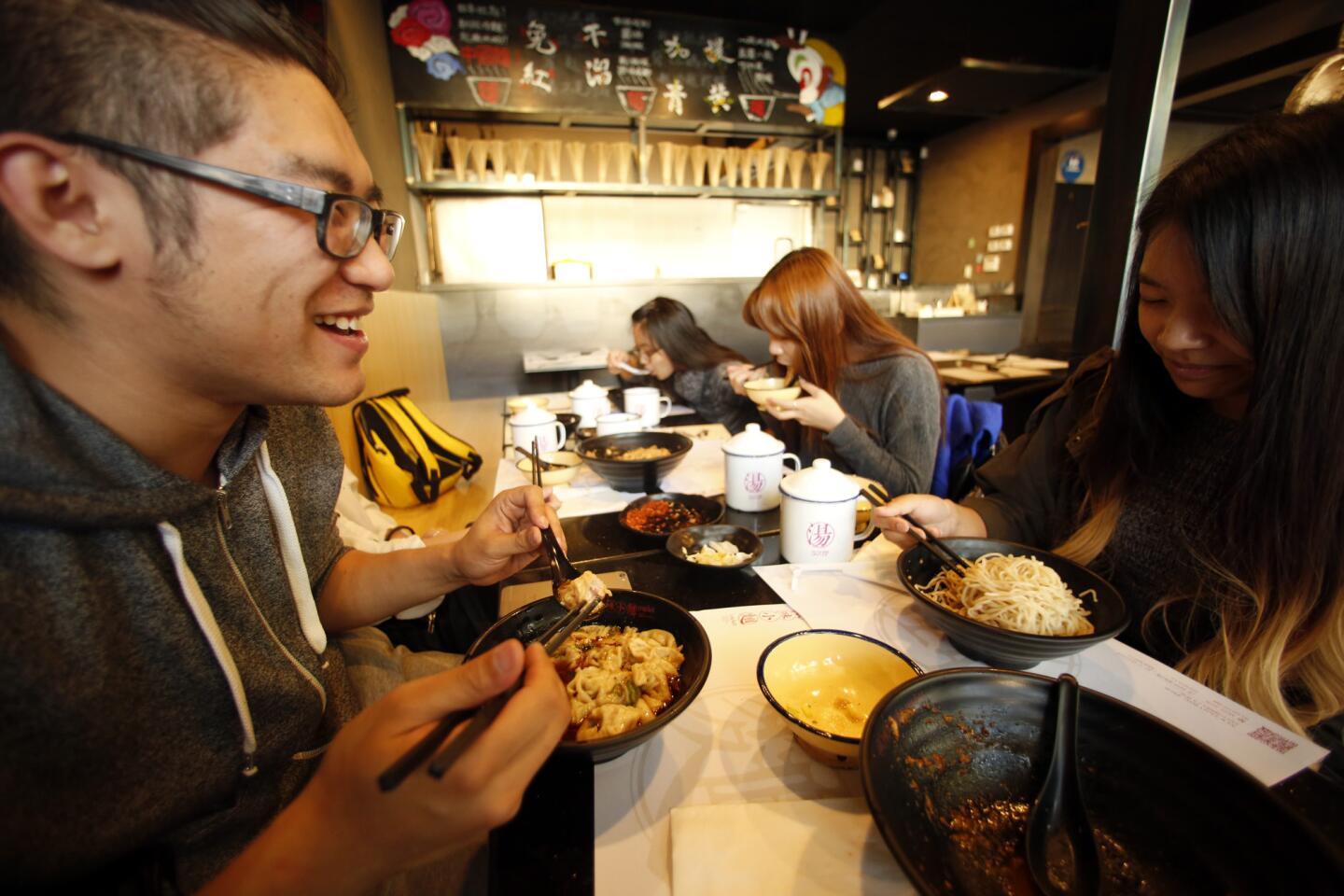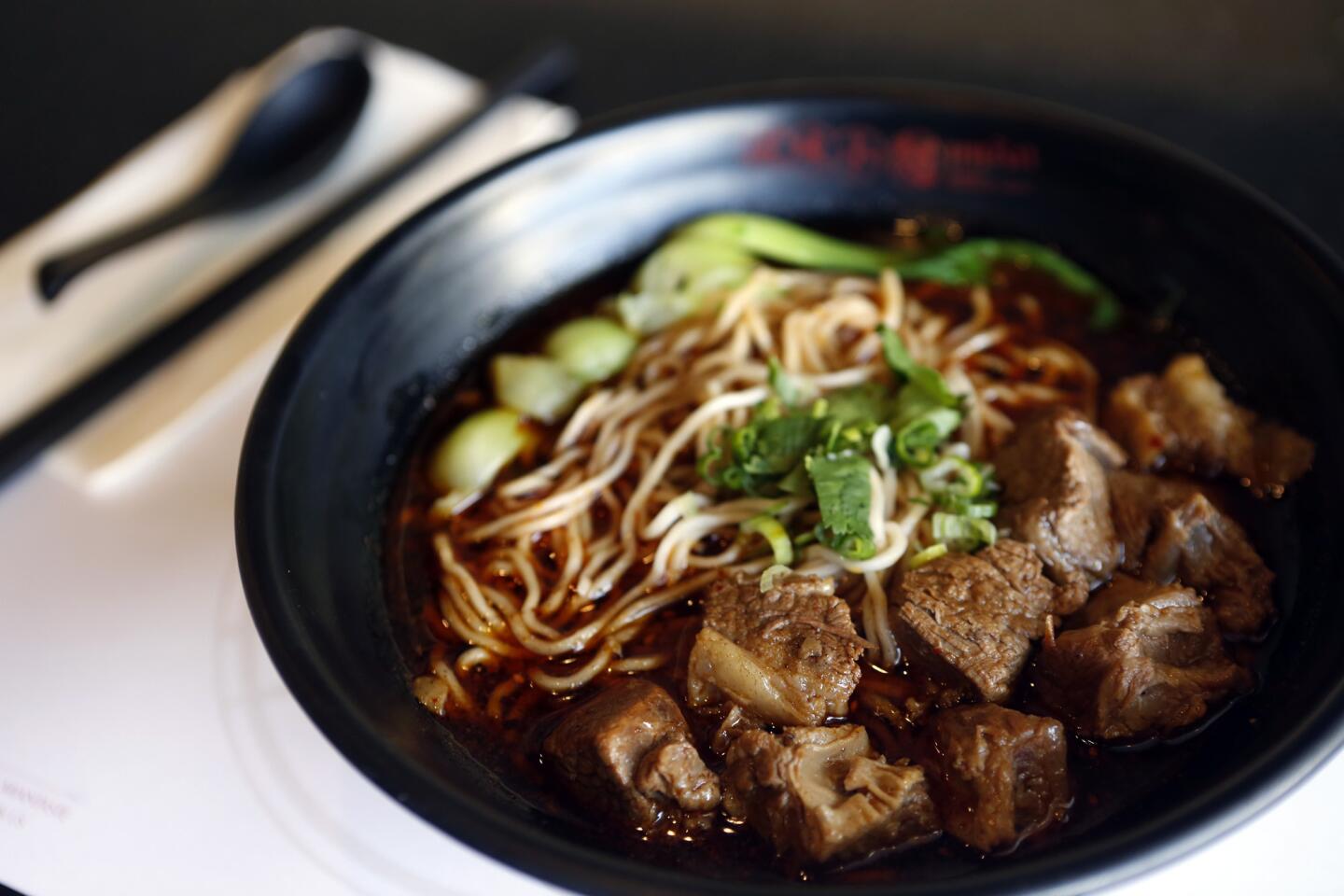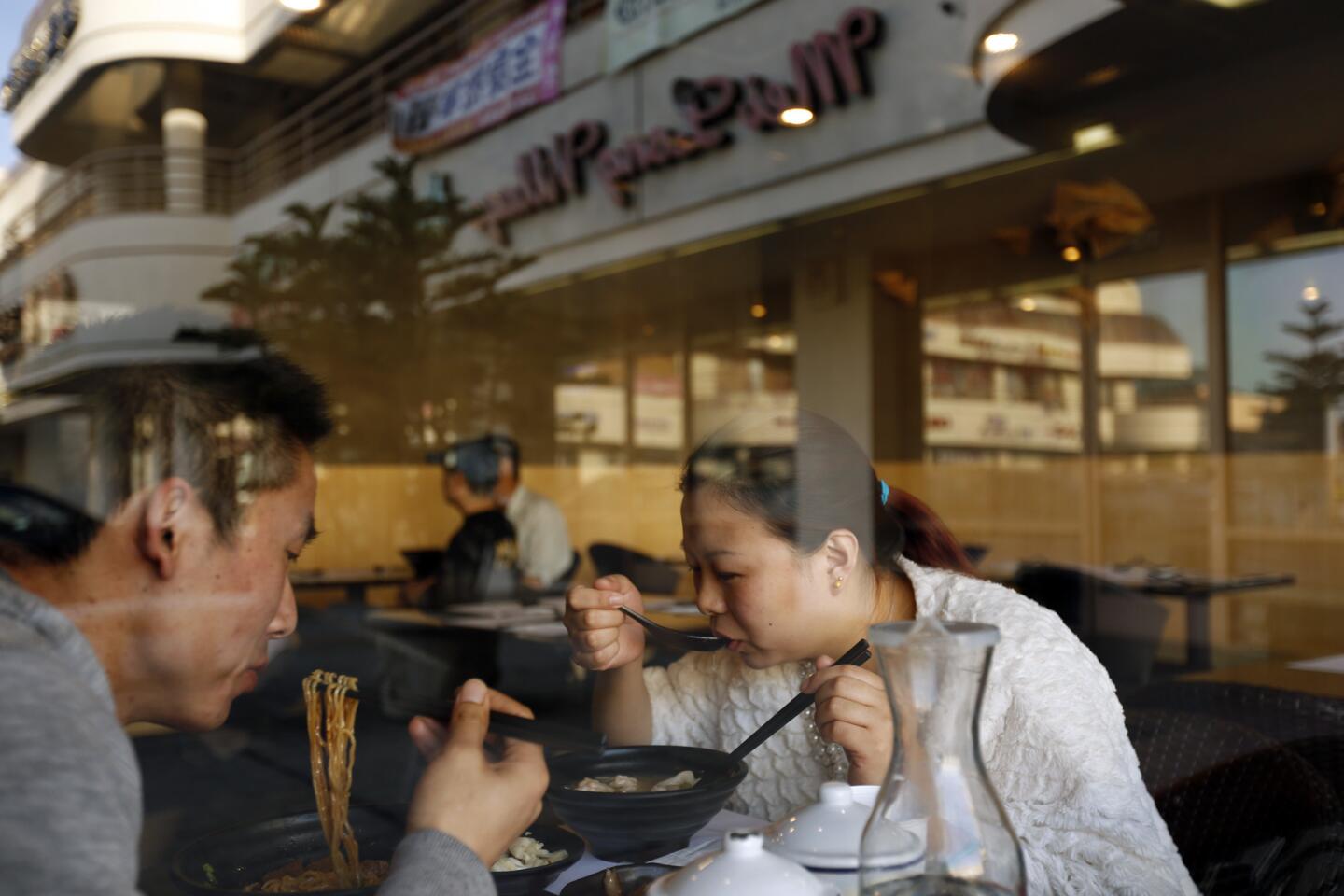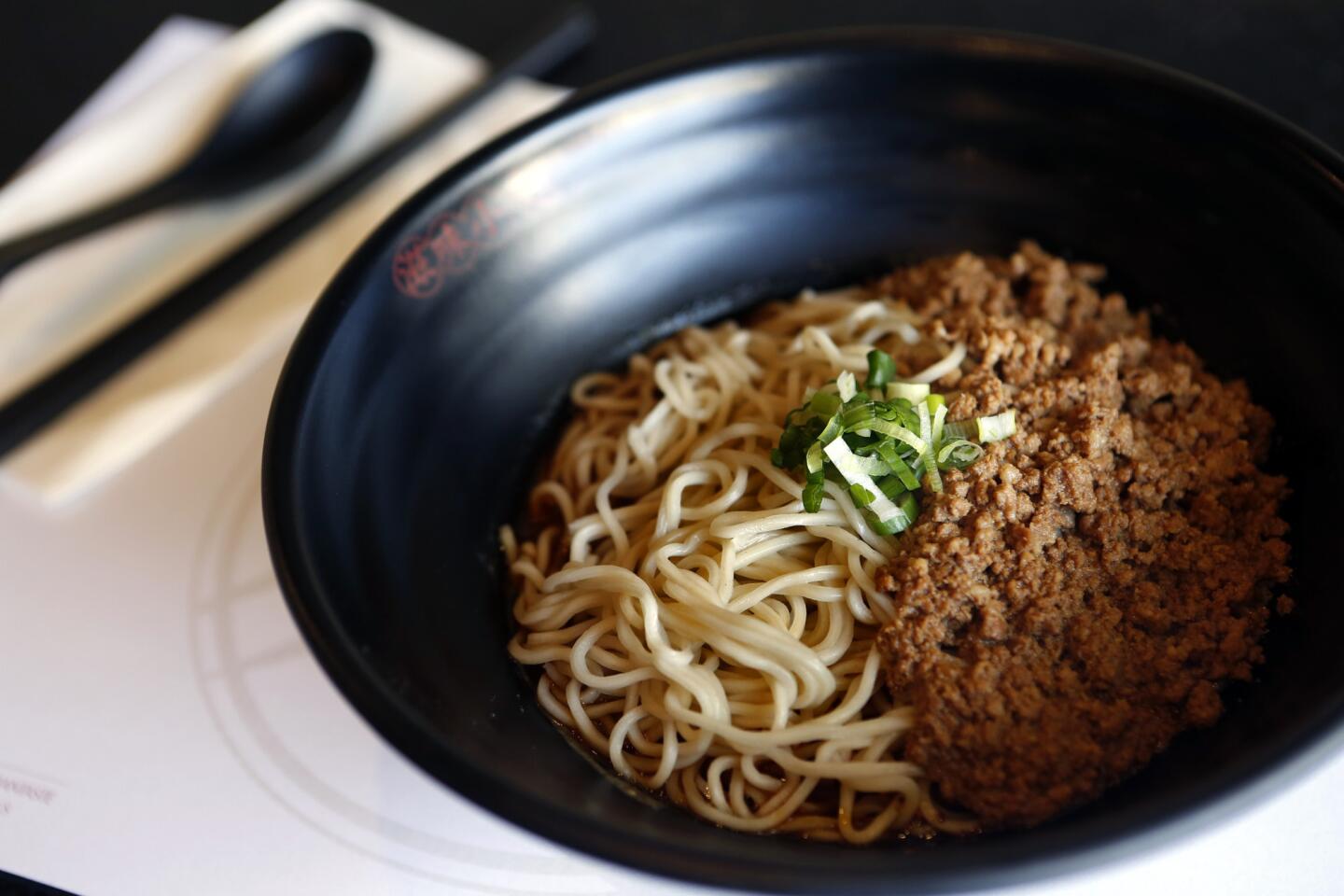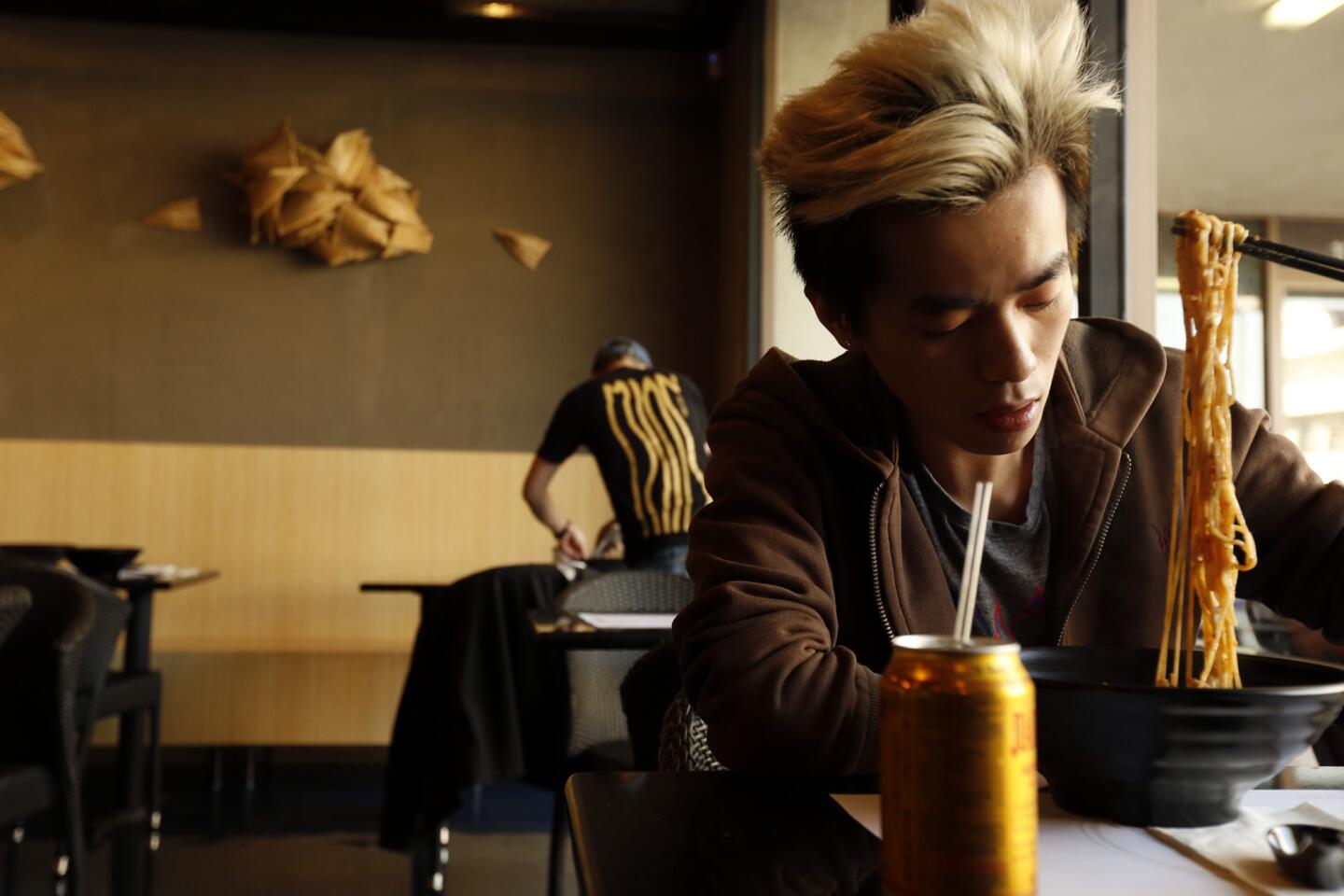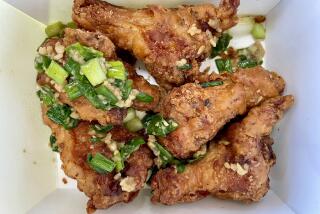Review: Mian restaurant has noodles like no one else in the San Gabriel Valley
You know zhajiangmian. It’s that dish of springy wheat noodles, often hand-pulled, tossed with bean sauce, ground pork and usually some other stuff, that you may have tasted in Chinese noodle shops like Malan Noodles in Hacienda Heights and China Tasty in Alhambra. In Chinese-Korean noodle houses like Mandarin House and Lee Mangu Kyodong Jjamppong, where the dish is spelled something like jajangmyun, the sauce is as dark and thick as motor oil, although the noodles remain hand-pulled. (In Korea, jajangmyun is eaten to celebrate Black Day, a holiday with certain lonely hearts implications.)
And now there’s the truly excellent Chengdu zhajiangmian at Mian in San Gabriel, the new Chongqing-style noodle house opened by Tony Xu, the chef behind the astonishingly popular Chengdu Taste restaurants in Alhambra, Rosemead and Rowland Heights.
Mian, named for the Chinese word for noodles, is in the San Gabriel strip mall also home to the soup dumplings at J&J and the Shanghainese pork hocks at Mei Long Village. It’s kind of a nice place, sleek and dark as the cabin of a billionaire’s jet, with jet-black plates, free-form black bowls and black lacquered spoons as big as ladles. A flatscreen on the far wall blares, as is usual in stylish San Gabriel Valley restaurants, an endless stream of K-Pop — in the course of a meal you will become rather familiar with the collected works of the girl group Sistar. The track lighting seems specifically designed to make the noodles pop on Instagram. As you might expect at a Tony Xu restaurant, there is often a formidable line.
There are other Sichuan noodle shops in the SGV — I like the dan dan mian at Lucky Noodle King and the beef noodles at No. 1 Noodle House — but there is nothing quite like Mian. The flavors are bright and clean, informed as much by the tart funkiness of Sichuan pickles as by pure chile heat; the noodles (handmade, although not necessarily in-house) have an integrity and chew you might associate with good Italian pasta.
You will find most of the spicy noodles you probably expect, including a meaty, crisp rendition of the ubiquitous beef noodle soup, and Huaxing noodles floating beneath a fried egg in what tastes like a first-rate tomato soup. Hot-sour noodles, a popular Chengdu specialty, are softer and thinner than the Chongqing noodles, serving almost to thicken the tangy broth. Beef pickle noodles are garnished with sliced meat and submerged in a tingly, green Sichuan pepper-rich broth that may remind you of the green pepper water-boiled fish at Chengdu Taste across town. The noodles are in a mild chile sauce that’s spiked with soft, barely gamy bits of chicken gizzard and comes across almost as a Sichuan take on Thanksgiving giblet gravy: both novel and familiar as a folk song.
When you finally land a table, you are brought a small bowl of pickled cabbage zapped with Sichuan peppercorns and a lidded, enameled-metal mug labeled SOUP.
The first time I stopped by the restaurant, I imagined that the pale, murky liquid inside the mug was an extremely thin broth, although it didn’t really taste like anything, and I abandoned it after a tentative sip. On my second visit, a server mentioned that it was actually a bit of the water used to boil the noodles, and that some of the customers used it to thin out a too-spicy sauce. The next time, everybody at the next table seemed to be using the hot water as a dip, as if it were the seasoned broth Japanese restaurants serve with their cold soba noodles — I tried it, but the only effect was to rinse off most of the tasty sauce. A couple of visits later, the manager repeated the thinning-the-sauce story, but then confessed: In Chongqing, it is customary to sip noodle water when you eat noodles. Mystery solved!
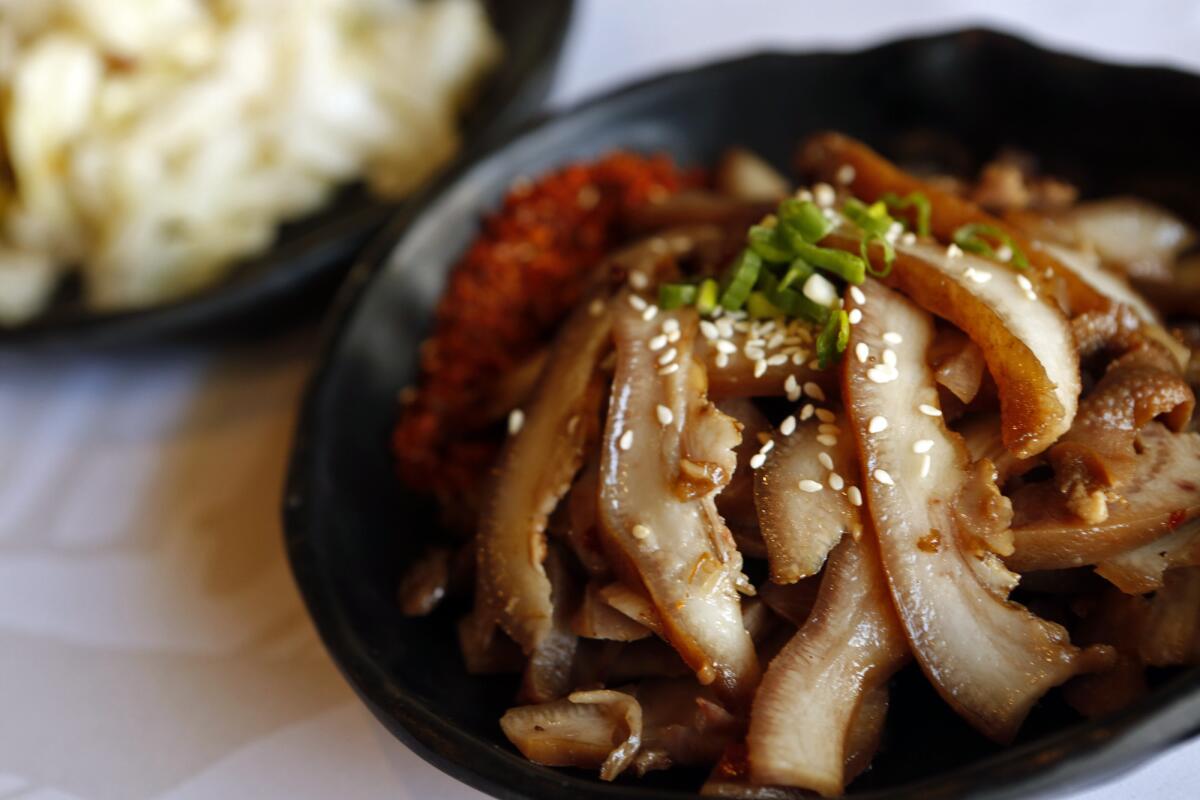
Marinated pork and Chengdu pickles.
If you need a side dish, you can get slivered salted radish lashed with chile paste, cold marinated beef dusted with super-hot powdered chiles, or a dish of marinated pork that turns out to be sliced pig’s ear. A bowl of steamed egg frosted with crumbles of sautéed pork isn’t bad; it’s like something you might see in a progressive Japanese izakaya.
It’s hard to imagine visiting Mian without at least one plate of the chaozhou, minced-pork dumplings, more or less like wonton, whose job is as much to pick up the flavors of hot-sour broth or red chile oil as it is to stand as dumplings on their own. The half-moon-shaped pork dumplings, in a sauce of chile oil, sugar and garlic, may be even better — they’re like the Platonic ideal of the Sichuan dumplings New York delivery joints tend to throw in when your order reaches $15.
But you’re probably here for the zhajiangmian, a bowl whose surface is paved with ground pork and scallions, and whose noodles have a distinct chewy pull. These are noodles with a mean streak, a potent lashing of hot chile and oil, laced with just enough Sichuan peppercorn to numb your palate, to make the next bite not just tolerable but actually kind of great.
The difference between the Chengdu zhajiangmian and the Chongqing zhajiangmian at Mian? The latter includes soft peas imported from Chongqing. And who wouldn’t want a handful of Chongqing peas?
::
Mian
The folks who brought you Chengdu Taste open a noodle house in the San Gabriel Valley.
LOCATION
301 W. Valley Blvd. No. 114-115, San Gabriel, (626) 693-6888, www.mian.us
PRICES
Noodles $7.99-$9.99; dumplings $8.99-$9.99; small dishes $1.99-$4.99.
DETAILS
Open daily, 11 a.m. to 3 p.m. and 5 p.m. to 9 p.m. Cash only. No alcohol. Lot parking.
RECOMMENDED DISHES
Chengdu zhajiangmian; hot and sour noodles; beef pickle noodles; Huaxing egg noodles.
MORE
In Venice Beach, the place to eat is Dudley Market, and the dish to try is uni-topped black risotto
Little Sister Downtown has addictive lemon grass chicken, a gonzo banh mi and good congee
At Josiah Citrin’s Charcoal Venice, the meat is meat. But the charred cabbage is something else.
More to Read
Eat your way across L.A.
Get our weekly Tasting Notes newsletter for reviews, news and more.
You may occasionally receive promotional content from the Los Angeles Times.
